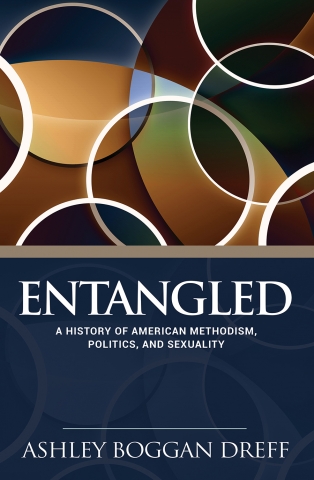
Entangled: A History of American Methodism, Politics, and Sexuality by Ashley Boggan Dreff
Disagreements in The United Methodist Church about human sexuality extend as far back as the birth-control movement of the 1920s, writes Ashley Boggan Dreff in “Entangled: A History of American Methodism, Politics, and Sexuality.” The book, published by the United Methodist Board of Higher Education and Ministry, covers the attitudes of U.S. Methodists about sexuality since World War II. Read press release
“Entangled: A History of American Methodism, Politics, and Sexuality” is available at Cokesbury.com and Amazon.com. For more information about GBHEM’s Publishing Office, visit www.gbhem.org/about/publications or follow @GBHEMPublishing on Facebook.
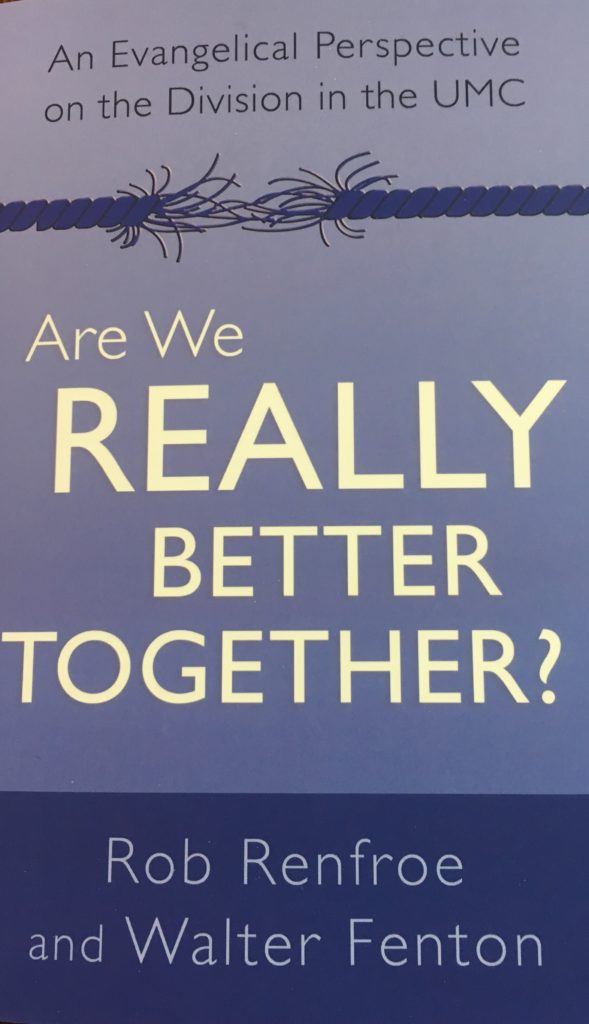
“Are We Really Better Together?” by Rob Renfroe and Walter Fenton
Are we better together? Are we really together?
Rob Renfroe is Pastor of Discipleship at The Woodlands UMC in Houston, Texas, leader of the popular Men’s Bible study Quest, attended by over 500 men, and author of The Trouble with the Truth, A Way Through the Wilderness, and The Joy Stealers. He also is president of Good News–a national organization committed to the doctrinal integrity and spiritual renewal of The United Methodist Church.
Walter Fenton is an ordained elder in The United Methodist Church out of the Greater New Jersey Annual Conference. He serves an extension appointment as the vie-president for strategic engagement for the Wesleyan Covenant Association.
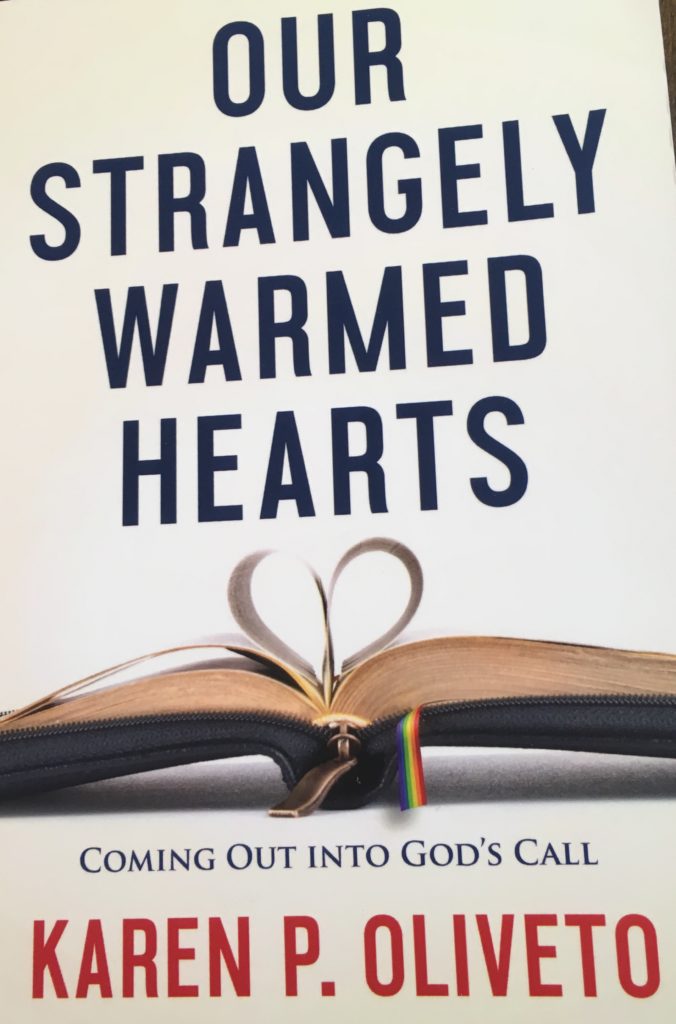
“Our Strangely Warmed Hearts” by Karen P. Oliveto
Because God is love, all are welcome no matter whom you love.
As John Wesley discovered his true spiritual identity, he experience a strangely warmed heart. Through poignant stories and well-reasoned principles, Karen Oliveto discloses how spiritual renewal and a personal call to ministry now emerge in the strangely warmed hearts of lesbian and gay Christians.
In The United Methodist Church and other Christian denominations, it is difficult or impossible for lesbian, gay, transgender, and bisexual clergy or laity to become visible, outward channels for God’s saving grace. Karen Oliveto traces the church’s history with this struggle with homosexuality. The controversy is deeply rooted in how God’s people are searching the scriptures, which are interpreted as a means of grace for some and as a rulebook for others.
This book includes first-person narratives from LGBTQ persons faithfully spring in a denomination that denies their calls and–in some cases–their presence. These stories show how the coming-out process is deeply spiritual as they speak calmly from the heart, through pain, and sometimes with a disquieting understanding of our shared Christian faith together.
Karen P. Oliveto is bishop of the Mountain Sky Episcopal Area (Colorado, Wyoming, Montana, Utah, and a small portion of Idaho) for the United Methodist Church. Previously, for eight years, she served as a senior pastor of twelve-thousand-member Glide Memorial United Church in San Francisco. Karen is the first woman to serve as senior pastor at Glide, the fifth-largest United Methodist congregation in the US; she is the first woman to serve as senior pastor in one of the denomination’s one hundred largest US congregations; and she is the first openly lesbian bishop in The United Methodist Church. Her wife, Robin, a nurse anesthetist, is a deacon in The United Methodist Church.
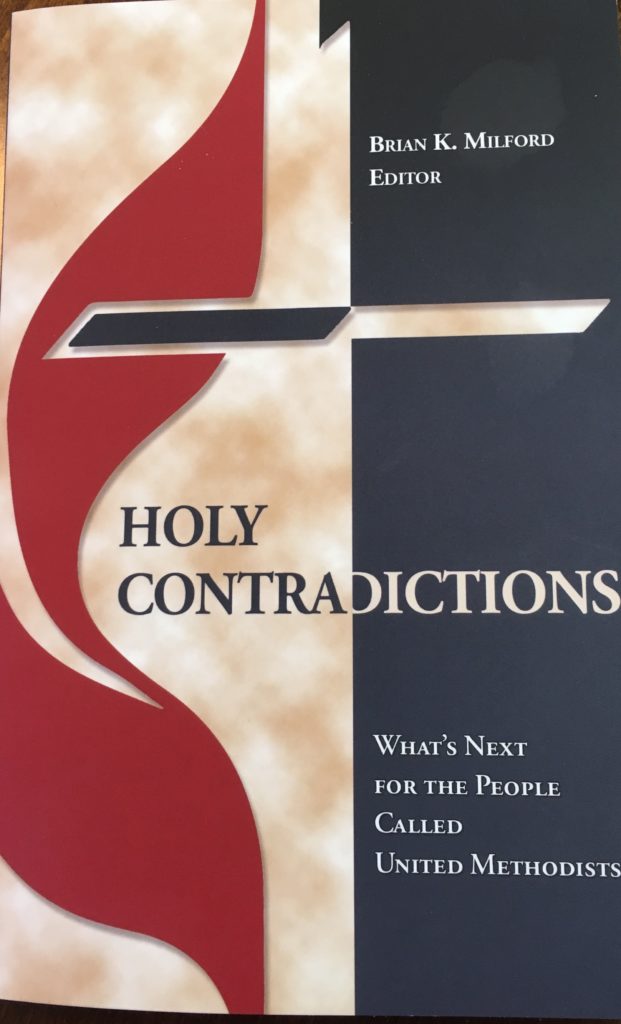
“Holy Contradictions” edited by Brian K. Mulford
Holy Contradictions
How might United Methodists bear witness to graceful and mutually respectful ways of living in the Wesleyan tradition amid enduring disagreements about same-gender relationships and related church practices? The seventeen essays in this book describe different views on this question at a particular moment in the life of The United Methodist Church. We encounter advocates with a passion for evangelism and for justice; examples of a shared appreciated for biblical authority that lead to quite different conclusions about biblical interpretation; an emphasis on unconditional grace as well as on the process of sanctification; attention to personal holiness and to social action; and respect for the existing contents of The Book of Discipline, in addition to cries for necessary and overdue changes.
The writers–M. Garlinda Burton, Bryon D. Collier, Jim and Jennifer Cowart, Magrey deVega, David N. Field, Rob Fuquay Diane Kenaston, Eduard Khegay, Scott T. Kisker, Thomas A. Lambrecht, Tracy S. Malone, Donna Pritchard, Kimberly D. Reisman, Laceye Warner, Audrey Warren, Jay Williams, J. Philip Wogaman–help us envision ways in which United Methodists might provide a powerful example and healing witness to a divided world.
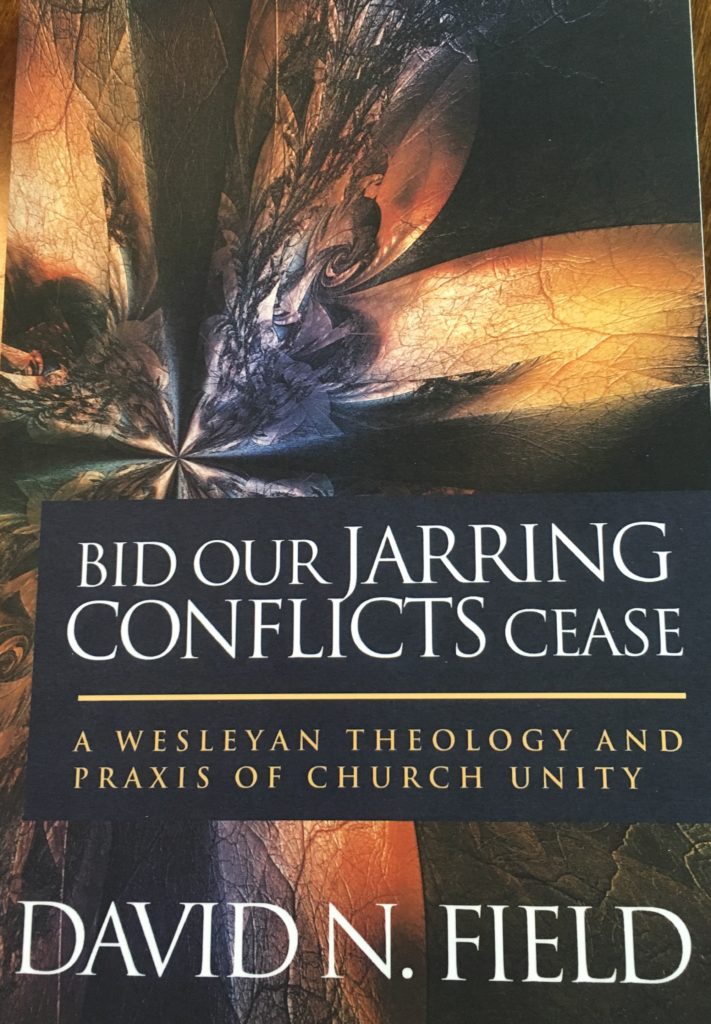
“Bid Our Jarring Conflicts Cease” by David N. Field
A Wesleyan Theology and Praxis of Church Unity David N. Field examines and interprets three of John Wesley’s key sermons and Wesley’s interpretation of holiness in terms of Methodist identity and diversity especially as it relates to human sexuality. Field’s main point is that schism and heresy are not doctrinal divisions but failures to love. Theological discussions about diversity in Methodist Churches usually reference a few standard quotes from John Wesley, particularly his sermon “Catholic Spirit.” Field suggests that these references are only a part of the greater whole of Wesley’s theology and his understanding of the mission of the Methodist movement. Field is a research associate at the Research Institute for Theology and Religion at the University of South Africa, and academic coordinator for the Methodist e-Academy. The e-Academy is a theological education project for Methodist Churches in Europe, providing online supplementary education in Methodist Studies for ordination candidates and continuing education for pastors and lay leaders. Learn more…

The Anatomy of Peace: Resolving the Heart of Conflict, Arbinger Institute
What if conflicts at home, conflicts at work, and conflicts in the world stem from the same root cause? What if we systematically misunderstand that cause? And what if, as a result, we systematically perpetuate the very problems we think we are trying to solve? From the authors of Leadership and Self-Deception comes a popular book that instills hope and inspires reconciliation. Through a moving story of parents who are struggling with their own children and with problems that have come to consume their lives, we learn from once-bitter enemies the way to transform personal, professional, and global conflicts, even when war is upon us.

The Unity of the Church and Human Sexuality: Toward a Faithful United Methodist Witness, General Board of Higher Education and Ministry
Suitable for a 4-week study, this resource addresses how the church be a witness and provide for a diversified human community. Based on a paper by Dr. Charles M. Wood, the resource presents United Methodists an opportunity to think about what has become a cultural and ecclesial flashpoint—human sexuality—and comes out of the conviction that the church is thirsty for theological conversation.
Embracing the Wideness: the shared convictions of the UMC, by Bishop Kenneth H. Carter
Embracing the Wideness contrasts a generous orthodoxy with the culture wars that seek to drive a wedge between Christians with deep faith convictions. A generous orthodoxy is possible for The United Methodist Church because scripture supports both a confessing movement and a reconciling movement.
In addition to our divergent understandings of holiness in The United Methodist Church, we apparently have two distinct conceptions of church. These two conceptions of church present in American Methodism grew from seeds planted in the earliest practice of British Methodism:
1. A separatist church, which views holiness as a calling that separates us from the world—“come out from among them and be separated” (2 Corinthians 6:17). Here holiness is a quality that distinguishes Christians from the world.
2. An activist church, which understands holiness as a movement for change in an unjust world. The boundaries between church and society are blurred, with the “wheat and tares” growing together (Matthew 13) until God’s final judgment.
